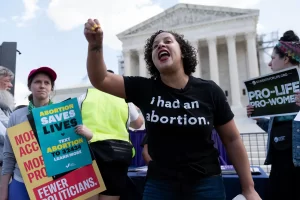
Florida revises school library book removal training after public outcry
Florida is progressing with a revised training program for public school officials responsible for managing library and classroom bookshelves. This comes after language changes that free speech advocates claimed misrepresented state law and led to unnecessary book removals.
“Taking into account feedback from stakeholders, we aim to offer clearer language,” stated Paul Burns, K-12 Chancellor of the State Board of Education, prior to the board’s approval. The board’s vote followed over six months of questions and concerns from advocacy groups and others. These concerns were prompted by the Florida Department of Education’s October memorandum instructing school leaders to remove any book containing “sexual conduct,” following a law signed by Gov. Ron DeSantis.
Stephana Ferrell, co-founder and director of research and insight for the Florida Freedom to Read Project, praised the state’s action but noted remaining issues in the training that could lead to further removals. She expressed disappointment over the delay in making changes, believing action was only taken after the Foundation for Individual Rights and Expression (FIRE) mentioned litigation.
FIRE, a First Amendment watchdog, stated that Florida’s guidance ignored a carveout specifying that materials with sexual conduct must be removed “for any grade level or age group for which such use is inappropriate or unsuitable,” requiring a more rigorous evaluation.
The organization also clarified that the provision was meant for book challenges, not for proactive removals of other titles. In Florida law, sexual conduct is a broad term encompassing various sexual acts.
“Some books that discuss sexual content, including numerous classic literary works, may be appropriate for an 18-year-old high school senior but not for a ten-year-old fourth grader,” stated FIRE in a news release. They joined the opposition a week before the vote upon discovering that the proposed training included language similar to the memorandum.
The proposal was amended to make the distinction clearer.
“We are grateful for the adoption of the last-minute amendment, which clarifies the ambiguous language and encourages districts to conduct comprehensive reviews of materials instead of permanently removing them based on isolated excerpts,” the Florida Freedom to Read Project announced on social media. The group has consistently criticized the law and the state’s guidance.
According to the USA TODAY NETWORK-Florida, the controversy surrounding the training revision extended beyond its content. The Florida Department of Education formed a workshop group, half of which were members of Moms for Liberty, strong advocates for public school book removals. This move drew criticism from book access advocates and highlighted the state’s alignment with the conservative group, which supports DeSantis.
Advocacy Groups Still Have Concerns
FIRE expressed satisfaction with the change, warning of a potential First Amendment lawsuit if the changes had not been made.
“This change is a win for Florida’s students,” said Aaron Terr, director of public advocacy for FIRE, in an emailed statement. “It should help stop the rampant censorship in Florida school libraries, many of which have removed hundreds of classic and contemporary books without evaluating their suitability for students.”
Burns stated that the changes “enhance the learning environment by ensuring we continue to have excellent materials.”
However, the Florida Freedom to Read Project still had issues with the confirmed training, particularly a slide advising educators to “err on the side of caution” with book removal decisions.
Ferrell, in a follow-up phone interview, expressed concern that the training presentation slides lacked sufficient context, especially those citing a preexisting criminal statute preventing the distribution of “harmful” materials to minors and warning about felonies if violated. The threshold to meet that standard is high, and any book meeting it would also be unsellable to minors in bookstores.
These references alarmed and confused educators when the first version of the training was introduced last year, leading to a surge in book removals from school libraries and classrooms.
Data from the American Library Association in March showed that Florida had more books challenged for removal than any other state in 2023, with nearly 2,700 titles targeted for censorship.
Overall, 4,240 works in school and public libraries were targeted in the U.S. in 2023—a significant increase from the previous record of 2,571 books in 2022.
Some Counties Have Removed LGBTQ Titles
Ferrell noted that the training was refined to clarify that laws regulating “instructional material” do not apply to library books.Following the passage of a law restricting classroom instruction on gender identity and sexual orientation, some counties had removed LGBTQ titles.
However, she recommended removing slides on “instructional materials” altogether to eliminate confusion and irrelevant sections from the training.
The revised training also references 2024 legislation signed by DeSantis, limiting the number of books that non-parents or guardians can challenge. Andrew Spar, president of the Florida Education Association, appreciated some changes but pointed out that confusion wasn’t solely caused by the training slides.
“When the training was first implemented, numerous media specialists from around the state expressed concerns to me, not only about the presentation but also about what was being communicated in those training meetings,” he told the State Board of Education on Wednesday.
“I encourage you all to come into the schools to work with us, ensuring that the law’s intent is clearly communicated and that there’s no confusion.”






